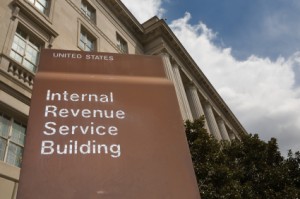The big “winners” in the Multi-State Settlement (“MSS”) are Florida and California who have exacted approximately half of all MSS monies between them. Regardless of these two goliath states, Nevada captured a decent amount. On any given day, Nevada ranks number one for bankruptcy filings and percentage of unemployed individuals. Furthermore, for the last five years Nevada, prior to passing AB284, has ranked number one for foreclosures.
Nevada is the clear devastation front-runner considering 1 in every 17 homeowners are at some stage of delinquency. Moreover, a full one-half of all residential housing stock is considered underwater and one-third of that is at or above 175% LTV. Nevada is said to have conservatively lost more than $10 Billion in real estate value. In this regard, Nevada is clearly the dubious winner. Perhaps, in a perverted sense, we have “won” again with this settlement.
$25 Billion, to be sure, is a large sum. However, it represents approximately one QUARTER of annual profit for the five major lenders (“Banks”). In exchange, not only do the Banks move forward on a far sturdier footing in terms of looming and expensive litigation, they have also seen to it to give themselves, their affiliates and relations a tax credit for the “good deeds” of refinance, principal write downs, cash for keys, etc. Moreover, they are getting these credits for writing down loans which they don’t own any interest in at all. Therefore, the actual stake-holders in those investments will probably be as kindly victimized by the Banks as the main street borrowers.
Why are we not only bailing Banks out but giving them tax breaks to run their business the way THEY SHOULD BE RUN? Why are we giving Banks and their servicers credit for potentially ruining the investments of others? Why do we continue to repeat the same mistakes and hope for different outcomes? These are questions only a silver-tongued politician or banker can answer. Certainly, they will manage to craft an answer, call a photo-shoot and make a speech while the rest of us continue to work, dutifully pay taxes and lose faith in our system.
Thankfully, the private sector has filed a number of law suits on behalf of and against some marquis real estate and finance players such as AIG, Black Rock and the SEC who sued untouchables such as Goldman Sachs, Bank of America and Wells Fargo. Nevada too has had enough and was one of only a handful of states that filed suits against the Banks and the ONLY state that has filed criminal charges until just recently with the state of Missouri filing a criminal action against a foreclosure document processing company in February of 2012.
Of the many issues that dog the litigation process (besides expense, time, and complexity) is the fact that states are dealing with moving targets. The speed with which the Banks buy, sell, merge, re-brand, dissolve entities, hire employees, change management and terminate employees is matched only by the speed with which banks bought, sold, manufactured and manipulated documentation in the last decade. These amoeba-like companies and their guerilla litigation tactics are no recipe for a swift resolution to Nevada’s immediate needs.
In contemplation of this slow bleed, Nevada settled its lawsuit with Bank of America and chose immediate funds and a promise to refinance or reduce borrowers’ principal. As a result, Nevada added more than $200 Million dollars to its settlement coffers. Again, this money is in addition to the $1.3 Billion marked as the amount headed to, or to be granted to, the citizens of the state of Nevada for criminal activities of the Banks.
In exchange for the MSS, Nevada and other participant states have agreed NOT to pursue the released parties from any CIVIL state action. However, that is not and should not be considered the end of the battle. Keep in mind that the states now armed with funds are still able to proceed criminally against the Banks and culpable parties. There is no reason to assume that Nevada will continue in this vein since we already have foreclosure-related civil and criminal suits pending. More important still is the fact that individual borrowers can collect their distribution AND pursue their state and federal claims unfettered by the MSS.

While I do agree that the MSS is working in the right direction it is not THE answer and it is so remarkably unbalanced that it is hard to digest. In reality, the Banks are not paying the touted $26 Billion but $5 Billion. The credits they will receive add up to nearly $20 Billion for principal reductions and refinancing. When this amount is divided amongst those foreclosed upon between September 2008 and December 2011, that leaves approximately $900 to $1,900 per loan depending on the number of persons opting in. There you have it folks! The price of high finance and crime in America is less than $2,000 per loan.
The $5 Billion in hard money that is said to be distributed amongst the states may be used as, when and how each state directs. Ironically, I am placing bets that these funds will be deposited into Bank of America accounts by the majority of recipient states leaving the Banks to gain still more benefit from the MSS.
As to the remaining $25 Billion, much of this allocation is to be used toward write-downs, refinancing, deficiency releases, cash for keys and other credit oriented “contributions” which will be distributed by the Banks and the MSS on a first come, first serve basis so it will be important for Nevadans to get in quickly lest other states take the loot.
The breakdown of Nevada’s take is as follows:
- From the MSS:
- Nevada will receive $60 Million in funds from the MSS. The state may do what it likes with these funds. I would expect that the state will either set up programs to assist Nevadans with participation in the MSS, direct funds towards legal aid, and, hopefully, use a good portion of the money to fund the criminal pursuit of individuals involved in bad acts concerning real estate finance, servicing, and foreclosures.
- Nevadans will be allocated $40 Million in payout to those borrowers who are deemed to be proper recipients. In order to be a “proper recipient,” your loan must have been in the portfolio of one of the participating banks. That is to say, it should not have been merely serviced by one of those banks or their affiliates. Borrowers whose loans were foreclosed upon and were owned by a GES, private trusts, or publicly traded securitized trust DO NOT QUALIFY for this payment. Moreover, the payment will only be delivered after the participant opts in. The payment will be based on a sliding scale from $900-$2,000 per wrongfully foreclosed upon borrower. Regardless of the participation, or the amount of the payment, the INDIVIDUAL BORROWER MAY STILL PURSUE ANY PRIVATE CLAIM HE OR SHE HAS RELATING THE LOAN OR FORELCOSURE.
- Although $1.2 Billion dollars has been allocated to Nevada, depending on the rush from other states, Nevada may not get that much money. Moreover, there is no right accounting that will ensure what amount we will receive at the end of the MSS distribution. These monies will be used toward principal reductions, refinancing, deficiency releases and cash for keys. Determining who is a qualified participant in this “menu of services,” is difficult. While one can assume that the participating banks have the authority to write down and forgive deficiencies in their own portfolios, it is hard to determine what, if any, authority a bank, or its servicer arm has to do this for a loan which the bank does not own. Indeed, the claim that banks do not have such authority (along with the moral hazard issue – as if the whole system is not rife with it) has been the main excuse for the banks not doing so to date.
- From the Bank of America Settlement:
- Included in the MSS, Nevada will get a guaranteed $750 Million in principal reductions and deficiency releases from Bank of America. This money too is relegated to the bank’s control.
- Nevada will also receive another $30 Million to use as it wishes (much like the MSS $60 Million mentioned above).
- Finally, there were modest amounts directed towards remuneration for odds and ends associated with the Bank of America lawsuit that Nevada will receive.
- Nevada Attorney General Catherine Cortez Masto shall receive a seat on the enforcement committee of the MSS.
Tisha Black Chernine, Esq.


 It seems everyone communicates by email these days, even many government agencies. Many people do not give it a second thought when they receive an email from the IRS stating that the agency wants some more information. But those people would be wrong to trust that email, because the IRS does not communicate with taxpayers by email! These emails are a “phishing” scam that seeks to obtain personal information from the taxpayer. The criminals that perpetuate these schemes use the information to commit several different types of crimes – they may use your social security number for identity theft, they may access your bank account and transfer money to their own accounts or they may file a tax return using your name and false information to request a big refund check.
It seems everyone communicates by email these days, even many government agencies. Many people do not give it a second thought when they receive an email from the IRS stating that the agency wants some more information. But those people would be wrong to trust that email, because the IRS does not communicate with taxpayers by email! These emails are a “phishing” scam that seeks to obtain personal information from the taxpayer. The criminals that perpetuate these schemes use the information to commit several different types of crimes – they may use your social security number for identity theft, they may access your bank account and transfer money to their own accounts or they may file a tax return using your name and false information to request a big refund check. Senate Bill No. 414 was introduced to address some of the consequences of the downturn in the current real estate market. Section 2 of the Bill was intended to prevent a bank from calling a
Senate Bill No. 414 was introduced to address some of the consequences of the downturn in the current real estate market. Section 2 of the Bill was intended to prevent a bank from calling a  While there has been a lot of attention directed toward the issue of the hiring of illegal immigrants, recruiters and employment referral companies must also be careful to follow the laws regarding the hiring of citizens and legal immigrants. Whether they consider themselves to be large corporations or small businesses, employers should be wary of the rules regarding employment of citizens, certain visa holders and “work authorized immigrants.”
While there has been a lot of attention directed toward the issue of the hiring of illegal immigrants, recruiters and employment referral companies must also be careful to follow the laws regarding the hiring of citizens and legal immigrants. Whether they consider themselves to be large corporations or small businesses, employers should be wary of the rules regarding employment of citizens, certain visa holders and “work authorized immigrants.”



